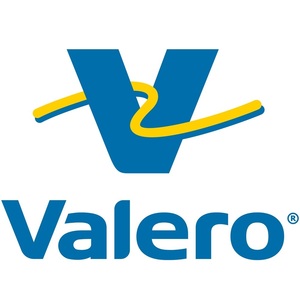Valero: 470 MMgy renewable diesel project in Texas moves forward

January 28, 2021
BY Erin Krueger
Valero Energy Corp. has announced it will immediately move forward with the development of a new 470 MMgy renewable diesel plant at its refinery in Port Arthur, Texas. Expansion projects are also underway at the company’s existing Diamond Green Diesel facility.
Joe Gorder, chairman and CEO of Valero, discussed the company’s three renewable diesel projects during a fourth quarter earnings call held Jan. 28. All three projects are a joint venture developed by Darling Ingredients and a subsidiary of Valero Energy.
The Diamond Green Diesel expansion project at Valero’s St. Charles refinery in Norco, Louisiana, is ongoing, he said. The project, referred to by the company as DGD 2, will boost renewable diesel production capacity by 400 MMgy. The project is currently expected to be completed during the fourth quarter of 2021, Gorder said. Capacity at the existing Diamond Green Diesel plant, referred to as DGD 1, has increased from 275 MMgy to 290 MMgy through continuous process improvement and optimization, he added. Once DGD 2 is complete, the total renewable diesel production capacity at the site is expected to reach 690 MMgy.
Gorder also announced board approval for the proposed 470 MMgy renewable diesel project in Port Arthur, referred to as DGD 3. “We’re moving forward with the project immediately, and we now expect the new plant to be operational in the second half of 2023,” Gorder said. “Once DGD 3 is complete, DGD’s combined annual capacity is expected to be 1.2 billion gallons of renewable diesel and 50 million gallons of renewable naphtha.” The company received necessary air permits for the project in October 2020.
Advertisement
Advertisement
There is also potential for Valero to shift production to sustainable aviation fuel (SAF) in the future. During the call, Martin Parrish, senior vice president of alternative energy and project development at Valero, explained that the modifications required to shift a plant from renewable diesel production to SAF are significant, but not huge. “We could pivot there when we need to pivot there,” he said, noting that the company does expect to see some SAF mandates established across the globe, but doesn’t know when those mandates might be put in place.
Valero’s renewable diesel segment reported $127 million of operating income for the fourth quarter, down from $541 million during the same period of 2019. After adjusting for the retroactive blender’s tax credit in 2019, adjusted renewable diesel operating income was $187 million for the fourth quarter of 2019. Renewable diesel sales volumes averaged 618,000 gallons per day in the fourth quarter of 2020, a decrease of 226,000 gallons per day versus the fourth quarter of 2019 due to the effect of planned maintenance in the fourth quarter of 2020. The renewable diesel segment set a record for annual sales volumes of 787,000 gallons per day in 2020.
Valero currently expects renewable diesel sales volumes to be at 790,000 gallons per day in 2021, with operating expenses expected to be at 50 cents per gallon.
The ethanol segment reported $15 million of operating income for the fourth quarter of 2020, compared to $36 million for the fourth quarter of 2019. Fourth quarter 2020 adjusted operating income was $17 million. Ethanol production volumes averaged 4.1 million gallons per day in the fourth quarter of 2020, which was 197,000 gallons per day lower than the fourth quarter of 2019. The decrease in operating income was attributed primarily to lower margins resulting from higher corn prices and lower ethanol prices.
Advertisement
Advertisement
Moving into 2021, Valero’s ethanol segment is expected to produce 3.7 million gallons per day during the first quarter, with operating expenses expected at 39 cents per gallon.
Overall, Valero reported a net loss attributable to Valero stockholders of $359 million, or 88 cents per share, for the fourth quarter of 2020, compared to net income of $1.1 billion, or $2.58 per share, for the fourth quarter of 2019. Adjusted net loss attributable to Valero stockholders was $429 million, or $1.06 per share, for the fourth quarter of 2020, compared to fourth quarter 2019 adjusted net income attributable to Valero stockholders of $873 million, or $2.13 per share.
For the full year 2020, the net loss attributable to Valero stockholders was $1.4 billion, or $3.50 per share, compared to net income of $2.4 billion, or $5.84 per share, in 2019. Adjusted net loss attributable to Valero stockholders was $1.3 billion, or $3.12 per share, for 2020, compared to adjusted net income attributable to Valero stockholders of $2.4 billion, or $5.70 per share, in 2019.
Related Stories
The U.S. Department of Energy’s Office of Energy Efficiency and Renewable Energy is soliciting public comments on a preliminary plan for determining provisional emissions rates (PER) for the purposes of the 45Z clean fuel production credit.
On July 17, Iowa’s cost-share Renewable Fuels Infrastructure Program awarded $1.12 million in grants for 20 applicants to add B11 and 4 applicants to add E15 to retail sites. This was the first meeting following the start of RFIP’s fiscal year.
Par Pacific Holdings Inc., Mitsubishi Corp. and ENEOS Corp. on July 21 announced the signing of definitive agreements to establish Hawaii Renewables LLC, a joint venture to produce renewable fuels at Par Pacific’s refinery in Kapolei Hawaii.
A new study published by the ABFA finds that the U.S. EPA’s proposal to cut the RIN by 50% for fuels made from foreign feedstocks, as part of its 2026 and 2027 RVOs, could stall the growth of the biomass-based diesel (BBD) industry.
Reps. Mike Flood, R-Neb., and Troy A. Carter, Sr., D-La., on July 21 reintroduced the SAF Information Act. The bill directs the U.S. EIA to more explicitly include SAF data in its weekly and monthly reports.
Upcoming Events










